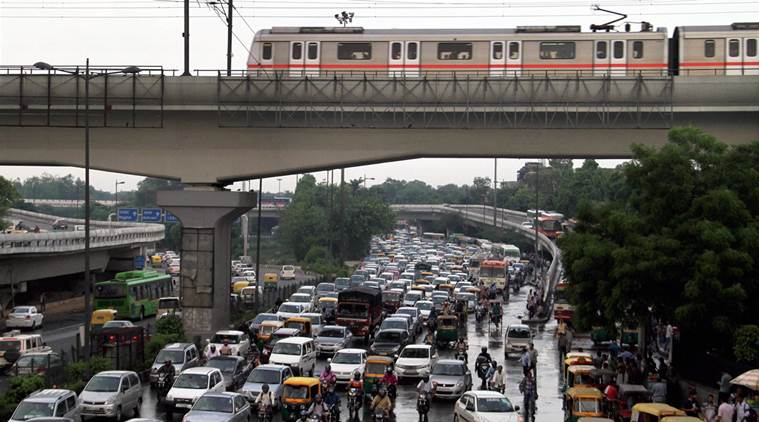New diesel cars ban: Wrongfully reactive
The Supreme Court’s order to ban in Delhi the registration of new diesel vehicles above 2000cc engine displacement has been top story material, and rightly so.
 There’s been great shout about this ruling being about banning SUVs and big cars of premium players that pollute the environment.
There’s been great shout about this ruling being about banning SUVs and big cars of premium players that pollute the environment.
It’s seldom that an auto industry related update becomes the lead topic for a news establishment, but that’s exactly what has happened today. The Supreme Court’s order to ban in Delhi the registration of new diesel vehicles above 2000cc engine displacement has been top story material, and rightly so. I find the ban utterly amusing.
While I wait for the approximate percentage contribution of diesel vehicles above 2000cc in the entire car landscape that I’ve requested auto manufacturers and research agencies to share, I know it for a fact (and it’s also common sense) that it is substantially lesser than the number of vehicles in the ‘upto-1.5-litre’ category.
WATCH: SC Bans Diesel Vehicles In Delhi: Its Implications
If someone from the panel cared to have read literature on the technology of the engines that are proposed to be banned, they’d have realised that most engines that are 2.0-litre and above in volume feature the most advanced diesel technology available in the current times. So, quite strangely, what Supreme Court has done is created a barrier for advanced technologies that help in curbing emissions by banning new diesel vehicles that are powered by engines of 2.0-litre capacity or above. What’s really bizarre about this entire matter is that the Supreme Court ban is applicable to cars that confirm with the latest Bharat Stage 4 (BS4) emission norms.
And if there is a thought that only diesel cars are the single biggest reason for vehicular pollution, then the better solution would be to impose a ban on all sub-1.5-litre diesel engines. After all, that category of diesel cars is much, much larger in proportion in the market and would make an absolutely immediate impact on emissions, as also on vehicular traffic in the capital city.
But all this car-banning talk is just a surface thought on the much larger issue. It’s often reported that Delhi registers around 1,500 new ‘cars’ every day — that’s not correct. Delhi, in a daily trend, gets around 1,500 new vehicles, and about 60-65% are two wheelers. Now imagine the twist this gives to the entire equation based on sheer numbers. According to a report from a couple of years ago, carbon monoxide due to two-wheelers was about 61 per cent and Lead (Pb) emissions by two wheelers were the highest across all vehicle categories. So, ban two wheelers perhaps?
There’s another reason why banning sub-1.5-litre engines would make sense. Most of the vehicles running in the commercial category are powered by very basic diesel engines and most of them are either too old, or not adequately maintained — that adds further to fouling the air quality in Delhi.
There’s been great shout about this ruling being about banning SUVs and big cars of premium players that pollute the environment. The one big player that gets adversely affected the most is Mercedes-Benz — the manufacturer that’s globally respected and recognised as maker of most advanced technologies. My simple point is this — had the ban been on the matter of traffic congestion, it still would’ve made sense.
Ban vehicles that are more than 15 years in age. Enforce a ban based on emission standards, not on fuel type — it’s simple as that. If all vehicles non-compliant with BS4 standards are taken off the roads, Delhi’s population will not only have clearer air to breathe, but also freer roads and lesser traffic snarls. Smooth flowing traffic itself would result in direct and indirect benefits to the national economy, as also quality of individual and public life.
It is quite ironic that it was the central government’s policy on diesel and the gain through subsidies that escalated the demand for diesel vehicles and the auto manufacturers had to shift dramatically towards catering to the ever-rising market share of diesel cars. There were environmental challenges back then, too — was the Supreme Court oblivious to that fact at the time?
I’m sorry, but it’s thoughtless bans like these that manifest the need to have an intellectual independent body to formulate and alter policies. It is also time that India adopted a lucrative scrappage schemes for car buyers. Let the government and auto manufacturers come together to incentivise consumers for scrapping their old vehicles. It’ll only help matters of industrial and economic development, and environmental protection — so, everyone’s happy!
- 01
- 02
- 03
- 04
- 05































